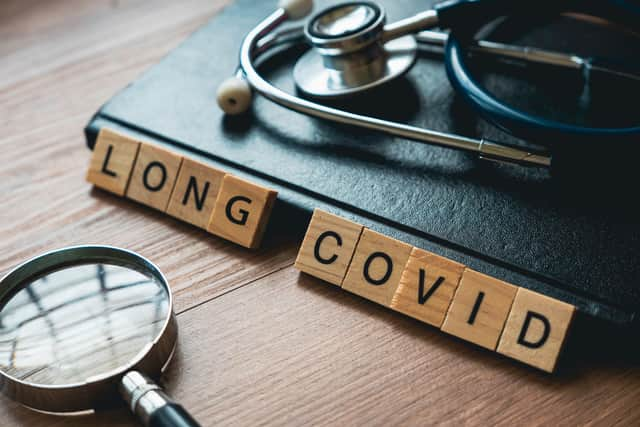Omicron: does coronavirus variant cause long Covid symptoms - how does risk compare to other variants?
and live on Freeview channel 276
Around two million people in the UK are thought to be currently living with long Covid.
But does the Omicron variant cause long Covid?


Here’s everything you need to know.
Does Omicron variant cause long Covid?
A UK investigation published in The Lancet suggests that last winter’s Omicron variant was less likely to cause long Covid.
Advertisement
Hide AdAdvertisement
Hide AdThe King’s College London team looked at data from nearly 100,000 people who logged their Covid symptoms on an app, with just over 4% of those infected during the Omicron wave logging long Covid symptoms, compared with 10% of those infected in the preceding Delta wave.
But, as far more people were infected during the Omicron wave, the total was higher.
The researchers tried to take into account other variables, such as how long ago someone had been vaccinated against Covid, but it’s not yet possible to be certain about the difference between variants causing the difference in long Covid numbers.
Lead researcher Dr Claire Steves said: "The Omicron variant appears substantially less likely to cause long Covid than previous variants - but still, one out of every 23 people who catches Covid-19 goes on to have symptoms for more than four weeks.
Advertisement
Hide AdAdvertisement
Hide Ad"Given the numbers of people affected, it’s important that we continue to support them at work, at home and within the NHS."
What are the symptoms of long Covid?
Common long Covid symptoms include:
- extreme tiredness (fatigue)
- shortness of breath
- chest pain or tightness
- problems with memory and concentration ("brain fog")
- difficulty sleeping (insomnia)
- heart palpitations
- dizziness
- pins and needles
- joint pain
- depression and anxiety
- tinnitus, earaches
- feeling sick, diarrhoea, stomach aches, loss of appetite
- a high temperature, cough, headaches, sore throat, changes to sense of smell or taste
- rashes
When should I see a GP?
You should see a GP if you’re worried about symptoms four weeks or more after you had Covid-19 or thought you may have had Covid.
Comment Guidelines
National World encourages reader discussion on our stories. User feedback, insights and back-and-forth exchanges add a rich layer of context to reporting. Please review our Community Guidelines before commenting.
